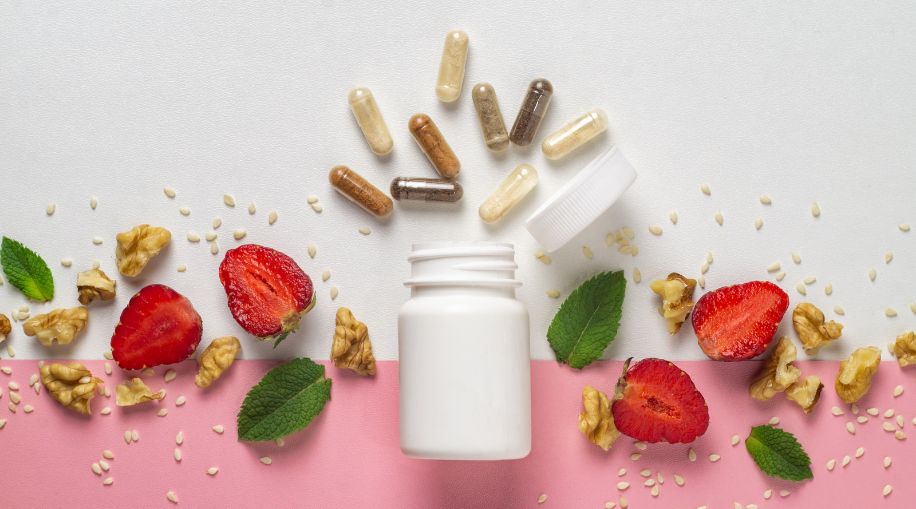Optimal Eye Nutrition
Ever wondered, “What vitamin is good for eyes?" Your eyes are complex organs that play a crucial role in your everyday life and work from the moment you get up until you sleep. To help improve eye health, there's EYLEA® (aflibercept), a medication that can help preserve vision and prevent blindness. Aflibercept belongs to a class of drugs known as growth factor inhibitors. It works by slowing the growth of abnormal new blood vessels in the eye and decreasing leakage from these blood vessels.
Drinks that May Harm Your Vision
- Excessive Alcohol.
- Sugary Soft Drinks.
- Energy Drinks.
- High-Caffeine Beverages.
- Large Amounts of Coffee.
- Artificially Sweetened Drinks.
- Sugary Cocktails.
- High-Sodium Beverages.
- Sweetened Iced Tea.
- Soda.
Best Vitamins for Eyes
Below we’ll discuss some of the best vitamins for eye health:
Vitamin A
Vitamin A helps your eyes produce rhodopsin, a substance crucial for low-light and night vision. Vitamin A also keeps the surface of your eyes moist, which helps to prevent dry eye and infections. Vitamin A deficiency can lead to eye issues, including night blindness, corneal ulcers and blindness.
Food sources of vitamin A include leafy green vegetables such as kale, spinach, arugula and collard greens, sweet potatoes, pumpkins, and bell peppers.
Vitamin C
Vitamin C is an antioxidant that protects your eyes from free radical damage, known as oxidative stress. Oxidative stress can damage the cells of your eyes and contribute to macular degeneration and cataracts. Vitamin C also helps your eye produce collagen, which is a protein that helps give strength and structure to your eye tissues. Collagen is essential as it helps maintain a clear cornea, the transparent layer covering the front of your eye.
Vitamin C may help to lower your risk of developing macular degeneration and cataracts by preventing the accumulation of cloudy deposits in your retina and lens. Food sources of vitamin C include guava, red and green peppers, oranges, strawberries, broccoli, and cauliflower.
Vitamin E
Vitamin E is another antioxidant that protects your eyes from free radical damage. Similar to vitamin C, vitamin E may help to lower your risk of developing macular degeneration and cataracts. Additionally, vitamin E may help to prevent or delay the onset of these eye diseases by improving blood flow to your eyes and reducing inflammation.
Food sources of vitamin E include leafy green vegetables such as kale, spinach, arugula and collard greens, nuts and seeds, avocado, Atlantic salmon, and red peppers.
Carotenoids
Carotenoids, including lutein, zeaxanthin and beta carotene, are pigments that give color to fruits and vegetables, including carrots, kale, tomatoes and spinach.
Lutein and Zeaxanthin
Lutein and zeaxanthin are found in high concentrations in your macula, which is the central part of your retina that is used for sharp and detailed vision, and your retina. Lutein and zeaxanthin help to block out harmful blue light that comes from the sun and artificial lights, including cell phones and computer screens. Blue light can damage your macula and cause macular degeneration.
Additionally, these carotenoids help to protect your eyes from oxidative stress and inflammation. Therefore, lutein and zeaxanthin may help to reduce your risk of developing macular degeneration and cataracts.
Beta Carotene
Beta carotene is a carotenoid that can be converted into vitamin A in your body. As previously mentioned, vitamin A is essential for optimal eye health, helping to keep your eyes moist and aids in night vision. Beta carotene also has antioxidant properties, which help to protect your eyes from oxidative stress, which can lead to macular degeneration and cataracts. Therefore, beta carotene may help to prevent macular degeneration and cataracts by reducing oxidative stress and inflammation.
Food sources of carotenoids include oranges, carrots, tomatoes, red peppers, pumpkin, and leafy green vegetables such as kale, spinach, arugula, and collard greens.
Eylea for AMD and Diabetic Macular Edema
Eylea is a medication used to treat certain eye conditions, such as age-related macular degeneration (AMD) and diabetic macular edema. It works by blocking a protein that can cause abnormal blood vessel growth in the eyes, helping to slow down vision loss and sometimes improving vision in individuals with these conditions.
Eye Health Essentials
Your eyes are vital organs that allow you to see throughout the day, and research has found that they need various vitamins and nutrients to function optimally. Certain vitamins, including vitamin A, vitamin C, vitamin E and carotenoids, including lutein, zeaxanthin and beta carotene, all play a role in optimal eye health. These vitamins and nutrients have antioxidants, anti-inflammatory, and protective effects for your eyes and may help to prevent or slow the progression of eye issues, including macular degeneration and cataracts.
Eating a nutrient-dense diet consisting of a variety of colorful fruits and veggies, whole grains, lean protein and healthy fats will help to keep your eye healthy. If you feel like your diet is lacking in these vitamins, consult with your doctor or dietitian before taking supplements, as some of them have side effects and may interact with the medications that you are taking.
